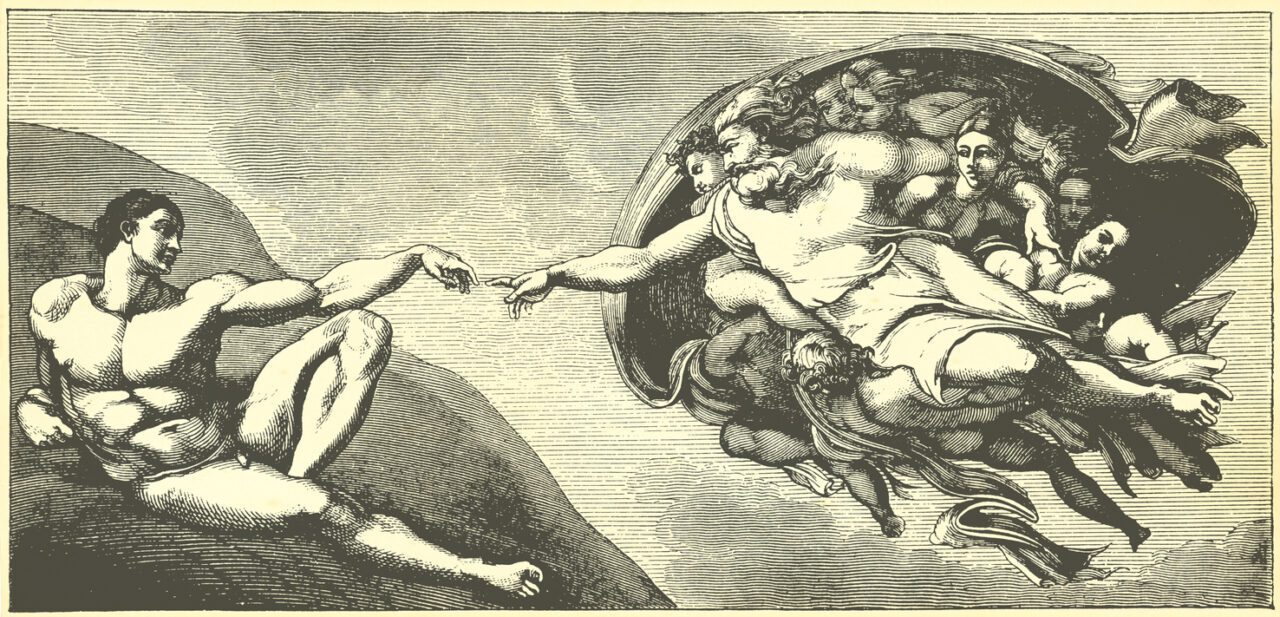0:00:23
This is the fifth episode in a mini-series based entirely around manifestation, creative thought, law of attraction, and the secret. The concepts behind it and whether it is something that is lawful or not. So, when I mean lawful, I mean, are we right with God if we utilize the methods employed in these types of secret and occult and esoteric teachings, or formerly secret and occult and esoteric teachings for our material benefit.
I finished the last episode speaking about the Lord of the Rings and how Sauron and his desire for the One Ring represent manifestation and creative thought. So, today, what I will speak about is the ancient myths, a few of them, I am not going to get too crazy with it, because they represent this entire topic perfectly. Anybody that has read or studied any of the classical myths, especially the Greek, the overall thing that you can say when it comes to human interaction with the gods is to be careful what you wish for. Even god’s interaction with other gods. I have not spoken about it in any of my other episodes, but the other term, the other idea that matches manifestation, law of attraction, creative thought, if you understand it in its true form is the philosopher’s stone. Anybody that has believed that alchemy, actual alchemy is turning physical lead into physical gold, was taken on a wild goose chase. I am not saying it was not possible. I am not saying that some extraordinarily inventive and creative chemists might not have achieved this, but the entirety of the philosopher’s stone is an allegory of turning the lead that dwells within you, your mind, your emotion, your experiences, your beliefs, your thoughts, and transforming them into spiritual gold. But since the same temptation exists in these thoughts, in these ancient methods of expressing manifestation, the secret, and law of attraction, the same warnings exist. The clearest one that I have . . . well, there are two of them. I cannot remember the exact goddess. But she is like a minor goddess. She has this one story, I believe, and it was it. I cannot remember if she was Dawn, or the sunset . . . I cannot remember what her name was. But what it is, is she meets a man, falls in love with him. Head over heels. She has never had any relationship, nothing. She falls head over heels for this human. And she goes to Zeus and says, “Zeus I have never asked you for anything. I want you to grant him eternal life.” And I cannot remember what it was. He was mad about something, but he tells her, all right, I will, with like an evil glee in his eye or something like that. So, she gets to live with this guy. They are happy, happy, happy, but she starts to notice that he is getting older. And day by day, older and older and year by year, older and older. And then when he should die, he does not. And so, he starts withering away and is in utter pain and misery because he will not die. She finally goes to Zeus. I think at this point, he is like a skeleton with a little bit of flesh on his skin. I cannot remember exactly. But she goes to Zeus and says, “I asked you for eternal life,” and he says, “How dare you question me?”
0:04:48
Their whole thing in the ancient Greeks was they would swear by the river Styx because that was the only thing that the gods would hold themselves accountable to was, the river Styx for some reason. I cannot remember . . . there was some logic to it. I cannot remember what it was. And she is like, “But then why is he like this?” And he is like, “Oh, because you asked for eternal life. But not eternal youth.” So, she did not use it properly. And when I say use it, I mean . . .
0:05:17
. . . If you translate deities in these ancient myths and mysteries, into the mind . . . if you look at them as the supreme expression of mind, which for any Greek student, you should instantly understand that because that is what their culture was. Right? It was this expression of the human spirit, and human mind. Well, that is what the gods represented as well. They represented these deeper mysteries of manifestation and the secret and law of attraction.
0:05:56
If you look at the myths, not all of them, right? Some of them are going to just be silly stories that have made their way throughout history. Others though, when it has to do with some kind of wish or a desire or human wanting to be with a god, or in love with a god, or the reverse, the same thing. Anytime the deities, for instance, revealed themselves to a mortal, it was . . . what is his name? Dionysus’ mom. She gets tricked into forcing Zeus, again, he swears by the river Styx. She makes him swear by the river Styx and he must reveal himself to her and it instantly annihilates her because of how powerful his being is compared to her being or something like that. Right? So, it is this be careful what you wish for, deal. Well, that is the warning and that is what can happen from this creative thought, from manifestation, from the secret.
0:06:55
In the Christian sense, this would be the same idea of being careful what you wish for, be careful what you bargained for with the devil. There is always a loop, there is always a catch. There is always something that the practitioner, the believer, the mage, Doctor Faust. Right? There is always something that they did not think of, and it always comes back to bite them in the butt. They always think they can out-think and outwit the devil and it never happens.
0:07:31
It’s that same idea because if you utilize creative thought or manifestation or law of attraction, and you have no idea what you’re doing, or if you have not mastered mental alchemy ahead of time prior to this, and then you use it, meaning you’re able to neutralize the effects that it may bring if you do not want them or if you overlooked something or if you’re experimenting, which is essentially what I was doing. You will blow your mind apart. You can cause yourself madness by doing this. And not just madness, but also damnation in a way if you do not know what you are doing. It is that old saying of not just be careful what you wish for, but if it is too good to be true, it is not. Now, obviously, I have said, and anybody with any experience in this or with synchronicity, it does work. But when you try and force it, there are usually, if not always, some type of unforeseen consequences. Some type of . . . I do not want to say punishment because it is not really a punishment. It is more just like . . . that Acme falling through the whole thing. Like, whoops, you decided to step through this, and this is what happens.
0:09:01
The other myth that talks about this, that I have seen at least, is this . . . is the myth of Phaeton. I think I am pronouncing that correctly. He believes that Helios, the sun god, is his father. His mother has told him his whole life, that is his father. And everybody makes fun of him, and he decides he is going to go to the east, to the house of the sun and declare himself and to be recognized by his father. So, he goes. It is one of those myths where it is like it should be this massive journey, but it is like he goes, and he goes to the east and then he gets there.
0:09:36
I have expressed in other podcast episodes my disdain for stories like that. I like hearing about the journey because you learn so much more from the actual journey. Anyways, he gets there, he gets everything he wants. The sun god tells him, look, yeah, boom boom, boom. I am. How can I show you? How can I prove it to you? What can I do? And again . . .
0:09:56
. . . as I said, he makes him swear by the river Styx. Phaeton makes his father the sun god swear by the river Styx that he will do and give him whatever he wants. And he says, again, if you do not know the myth, in case you ever see a painting of this, he asks to drive the chariot of the sun. And his father tells him . . . anything but that. You want riches, you want a kingdom, you want a this, you want a that, anything but that. He says, nope, that is what I want. And it turns out to be his undoing, but he had to give him that because that is what he wanted. So, he goes up, he is doing okay, until he wants to showboat to the people where he was at, the consequence I just mentioned. There is always a consequence.
0:10:44
There is always a catch. He would not stick to his father’s directions to fly the route that exists but had to go off to show those people down there that he is the son of the sun god. And it winds up torching all the land and Zeus must lightning bolt him out of existence. And then something about that puts the horses back on track and everything is fine except this Phaeton gets annihilated. So, if you interpret Phaeton as the philosopher’s stone or as the mind or as . . . or again another one would be the genie. The genie that grants wishes. And that there is always that catch of what it gives, what it brings. Right? So, it is the same thing. If you look at the sun god Helios, as like the genie in the Aladdin movie, the Aladdin stories, or any story from the Middle East that has to do with a genie, you are finding a genie. They give you, but they also take from you. There are always those consequences. And what is interesting is in the Phaeton myth that the father tries to beg him to not do it. But he still does it. He still wants it. And the God must stick to it because he swore by the river Styx.
0:12:08
The way I like to think about this is . . . and as an American, I cannot say every American, but there is probably some excess that you have fallen into, just like me, and how easy that is. Like I go to a steak house. I know I should just get the New York steak, but I get the porterhouse. Or I know I should just have one drink, but I drink three or four. Or I know I should just eat a leg, a thigh, and some chicken, but I wind up beating a leg and a thigh and two or three wings and a breast or something and I pig out. This happens daily unless we are just absolutely on top of ourselves every moment of every day, and then that just gets tiresome when you do try and do that. Everybody knows what I am talking about here.
0:13:08
And the idea that I have with this is I already mentioned the book of Job and God’s complete blasting him to bits of, “You know absolutely nothing. How dare you question me? So, it is the same with this manifestation and secret and law of attraction stuff. How do I know this is most definitely what I want? It will cause me and bring me zero consequences and most importantly is what God wishes for me and what God wanted for me, or am I stepping on the sovereignty of God by attempting to utilize this method of prayer, meditation, focus, thought, to bring about through creation, basically hacking into the system of how God created the universe, and then creating for ourselves in some way. And do I know if this is good or not for me? Meaning I have mastered the problem of good and evil prior to attempting to utilize manifestation, the secret, or the law of attraction to get what I want. That is the depth that I have thought about this. Obviously, it is because of my experimenting and unforeseen consequences that came about.
0:14:55
But let me give you an example. Just so you know: A, how powerful it is, B, how quickly your mind can be dumped into chaos, and how long it may take to claw your way out. I tested the philosopher’s stone on myself. I did not know it, but the world had already changed the next day. I just did not find out it had changed the next day until about two or three days later. Within a week or two, my mind, how I had had it, was already completely blasted to smithereens, and I was clawing for stability again. It took about two to three months until I felt like I was functioning normal again. And about six months until I knew, all right, I am back to the way I was before I tested the philosopher’s stone on myself. And that is from somebody that has studied this, that knows this, but that is the whole point. That is the point that I am trying to make, and I have said it in other sections as well, I think.
0:16:09
I did not seek the philosopher’s stone. The knowledge of it was given to me, and it was given to me because I already did not need it because I had already become an expert at mental alchemy and neutralizing the various thoughts and emotions that had plagued me my entire life. So, when I say it took about six months, it means I had to root out everything that using the philosopher’s stone had drummed up inside of me that I had not anticipated. And I had to work through and neutralize it. Now, for me, it turned out to be a positive because I learned and cleared out things that I was not even aware of, even from ten thousand hours of meditation. But that is how powerful this can be and how dangerous it can be. Lessons from ancient myths, lessons from the Lord of the Rings. I think I may have another one or two that I can talk about in another episode.
I will leave this at that. Until next time.




